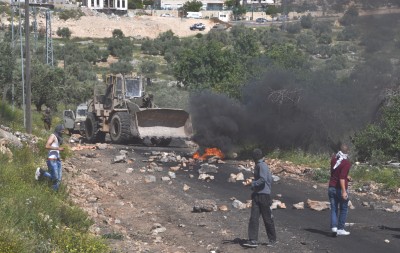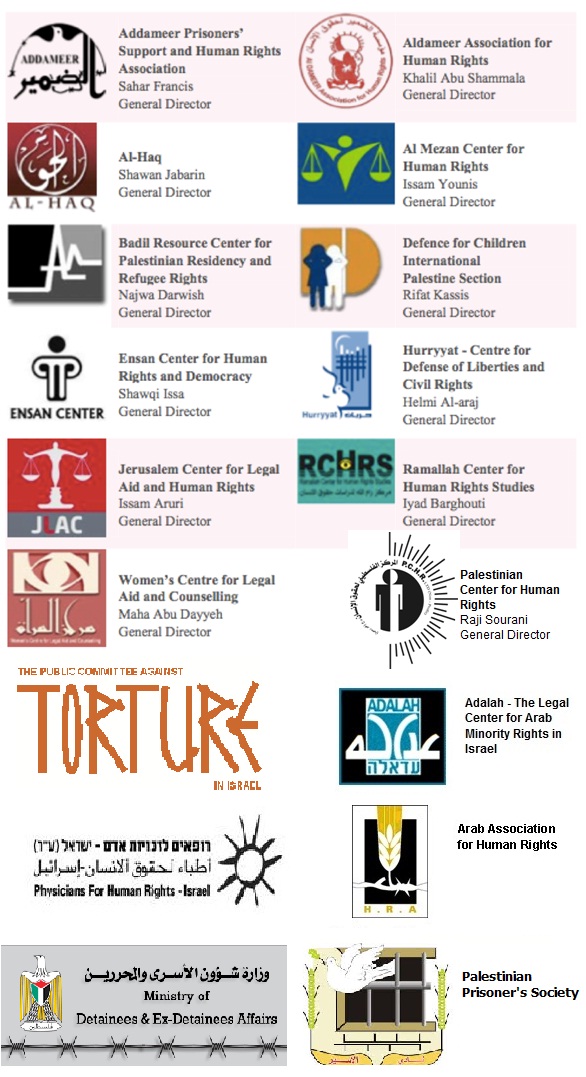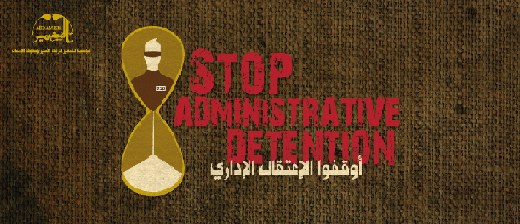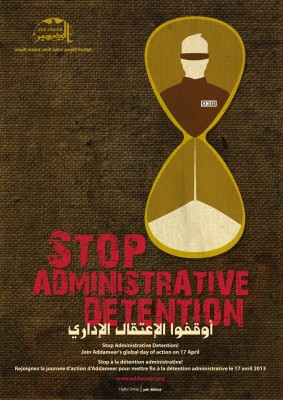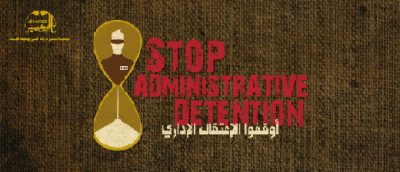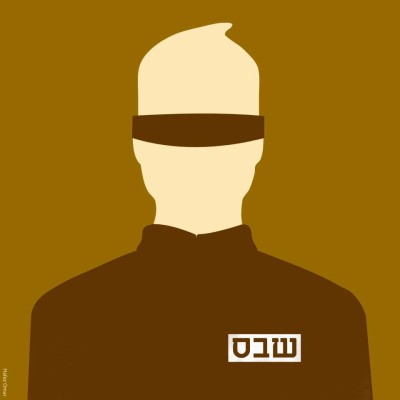3rd July 2014 | Addameer Prisoner Support and Human Rights Association | Kufr Qaddum, Occupied Palestine
Lawyers for Palestinian Human Rights (LPHR) and Addameer Prisoner Support and Human Rights Association (Addameer) submitted a joint complaint today to the United Nations Special Rapporteur on the situation of Human Rights Defenders (UNSR) concerning the arrest and continued pre-trial Israeli military detention of the Palestinian human rights defender, Mr Murad Shtaiwi (also spelt Eshtewi), who has been charged under Israel’s repressive protest law.
Mr Shtaiwi is a prominent Palestinian human rights defender through his work as the primary co-ordinator of the popular committee which organises peaceful protests in Kufr Qaddum. These weekly protests take place to demand the reopening of the main road connecting the village to the city of Nablus, and to express the residents’ opposition to the Israeli military occupation and the detrimental expansion of the nearby illegal Israeli settlement of Qedumim.
Mr Shtaiwi was arrested by Israeli military authorities on 29 April 2014 and has since been held in pre-trial Israeli military detention. He will stand trial on Sunday 6 July 2014 at Salem Military Court on three charges: participating in and organising unauthorised demonstrations (Israel’s Military Order No. 101); causing a public disturbance; and throwing stones at Israeli military authorities.
LPHR and Addameer are seriously concerned that Mr Shtaiwi has been charged under Israel’s Military Order No. 101 for exercising his right to protest under international human rights law. The order has been in force in the occupied West Bank since 1967 and places extremely severe restrictions on the right of Palestinians to participate in or to organize demonstrations. A person who violates the order is liable to 10 years’ imprisonment, a fine, or both penalties together.
LPHR and Addameer are also seriously concerned that Mr Shtaiwi has been charged with stone-throwing given his express commitment to peaceful protest. We call upon the evidence substantiating the charge of stone throwing to be subjected to rigorous examination and testing as part of the military trial due process, in line with Israel’s duty under international law to protect Mr Shtaiwi’s right to a fair trial.
Mr Shtaiwi’s peaceful work to promote, protect and realise human rights and fundamental freedoms means that he is entitled to the human rights protections outlined in the United Nations Declaration on Human Rights Defenders.
LPHR and Addameer have therefore requested in their complaint that the UNSR undertake an urgent examination into Mr Shtaiwi’s case and take appropriate action through urgent contact with the government of Israel to end the incidents of human rights violations against Mr Shtaiwi.
LPHR and Addameer have further requested that the UNSR considers undertaking an investigation into the disturbing pattern of harassment, arrests and detention of residents of the occupied West Bank Palestinian village of Kufr Qaddum by Israeli military authorities in apparent retaliation for the commencement of peaceful protest activities since 2011.
LPHR Director, Tareq Shrourou says
‘Murad Shtaiwi’s case is significant because it highlights the stark discrepancy between international law guarantees of the freedom to peacefully protest and the extremely restrictive Israeli Military Order No. 101 which operates to effectively prohibit and criminalise this basic right in the occupied West Bank.
We are deeply concerned that Mr Shtaiwi is being unjustly punished by Israel’s military authorities through use of this repressive protest law because of his prominent role as a human rights defender involved in persistent peaceful protests against Israel’s illegal activities affecting the Palestinian community in Kufr Qaddum.’
Contact information:
Tareq Shrourou, LPHR, London | contact@lphr.org.uk
Gavan Kelly, Addameer, Ramallah | gavan@addameer.ps
About Lawyers for Palestinian Human Rights (LPHR)
LPHR is a lawyer-based legal charity in the United Kingdom that works on legal projects aimed at protecting and advancing Palestinian human rights.
About Addameer Prisoner Support and Human Rights Association (Addameer)
Addameer is a Palestinian non-governmental, civil institution that works to support Palestinian political prisoners held in Israeli and Palestinian prisons.
More Information
Background information on the current arrest and detention of Mr Murad Shtaiw
On the night of 28 to 29 of April 2014, the Israeli military authorities raided different houses in the village of Kufr Qaddum to arrest five people: Mr Murad Shtaiwi and four young men, Reslan Joma, Ream Harham, Mustafa Shtaiwi and Ahmad Hassan Shtaiwi.
Mr Shtaiwi was held in Huwara military camp. The Israel Security Agency (ISA) only interrogated him briefly immediately before he was presented to a military court at Ofer camp near Ramallah on 2 May 2014.
Mr Shtaiwi was charged with the following three offences (he was presented with the final charge sheet on 12 May 2014):
i) Military Order 101 (participate in or organise demonstrations)
Between 2011 and February 2014, at different opportunities, including 21 February 2014 and 20 December 2014 or around those dates, in Kufr Qaddum or in other areas, Mr Shtaiwi participated in unauthorized demonstrations. He also organized some of the demonstrations. He used a bullhorn to call on people to join the demonstration.
ii)Activities against Public Order
From the beginning of February 2014 until 21 February 2014, or around those dates, on three different occasions, Mr Shtaiwi was with Riyad Shtaiwi, and they burned tires.
iii)Throwing stones on a person or moving object
On 21 February 2014, or around this date, in Kufr Qaddum, or around it, Mr Shtaiwi was in a demonstration with other people that were in the first accusation, and he threw stones at the Security Forces.
On 12 May 2014, Mr Shtaiwi was informed by Salem Military Court that he would remain in remand until the next court hearing date of Monday 9 June 2014. A petition by his lawyer against the remand order was heard by the military court of appeals on 18 May 2014 and rejected on 22 May 2014.
On 18 June 2014, Mr Shtaiwi’s detention was extended and his trial date was listed for Sunday 6 July 2014 at Salem Military Court.
Mr Shtaiwi faces a maximum sentence of 10 years imprisonment should he be found guilty of the first charge of violating Military Order 101 regarding the participation and organisation of demonstrations.
Previous alleged violation incidents by Israeli military authorities against Mr Murad Shtaiwi
LPHR and Addameer are able to specifically report on at least four previous alleged human rights violation incidents by Israeli military authorities against Mr Murad Shtaiwi.
Mr Shtaiwi was arrested on 16 March 2012, after an Israeli security forces dog attacked his nephew Ahmad Shtaiwi during a demonstration. A video shows him asking soldiers to help his nephew and order the dog to stop attacking him. Israeli military authorities sprayed him in the face with pepper spray and arrested him. Mr Shtaiwi was released after paying bail of around US$1,500, and was not charged.
Mr Shtaiwi was assaulted and arrested again on 20 December 2013 during a demonstration in Kufr Qaddum, and released four days later after paying bail of around US$1,500. He was not questioned during this detention and was not charged.
Mr Shtaiwi has been injured a number of times by Israeli military authorities using excessive force. On one occasion, on 6 September 2013, a tear gas canister hit him directly in the leg during a demonstration, and he was treated in hospital for a broken leg.
On 20 February 2014, Mr Shtaiwi was arrested, detained and interrogated for 6 hours and 30 minutes. In a meeting with Addameer just hours after this incident, Mr Shtaiwi gave his account of this incident which included this comment:
Two soldiers interrogated me and the soldiers were very specifically targeting me as a human rights defender. The soldiers lectured me for a long time, saying that I “can stop the demonstrations,” and that I am “influential in Kufr Qaddum.”
Mr Shtaiwi further stated that this arrest was not an isolated incident against him and other protesters; and that he appeared to be specifically targeted because of his role as a human rights defender:
I face regular intimidation at checkpoints because of my organizing activities. During a previous encounter with the Israeli forces, at which time occupation soldiers attacked my home with teargas and ransacked all of the belongings, one officer that went by the name “Sabri” told me “you must stop the demonstrations” and threatened me with arrest.

